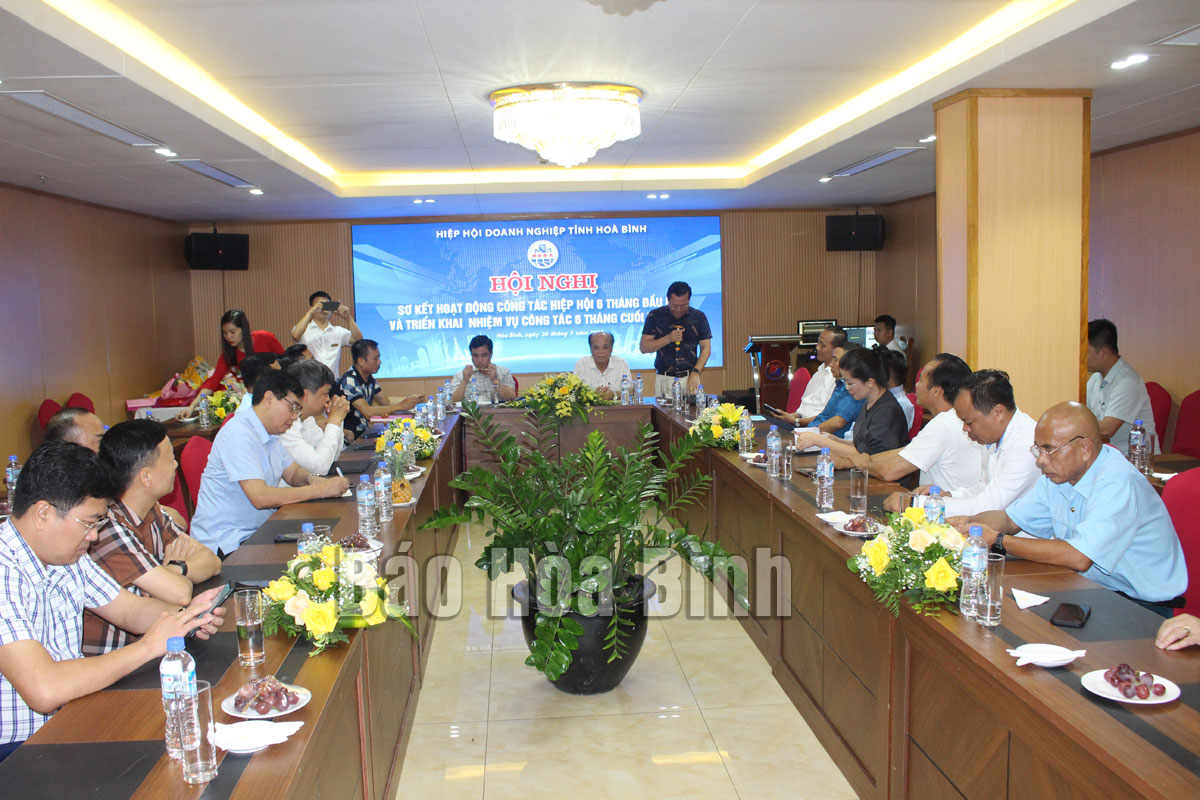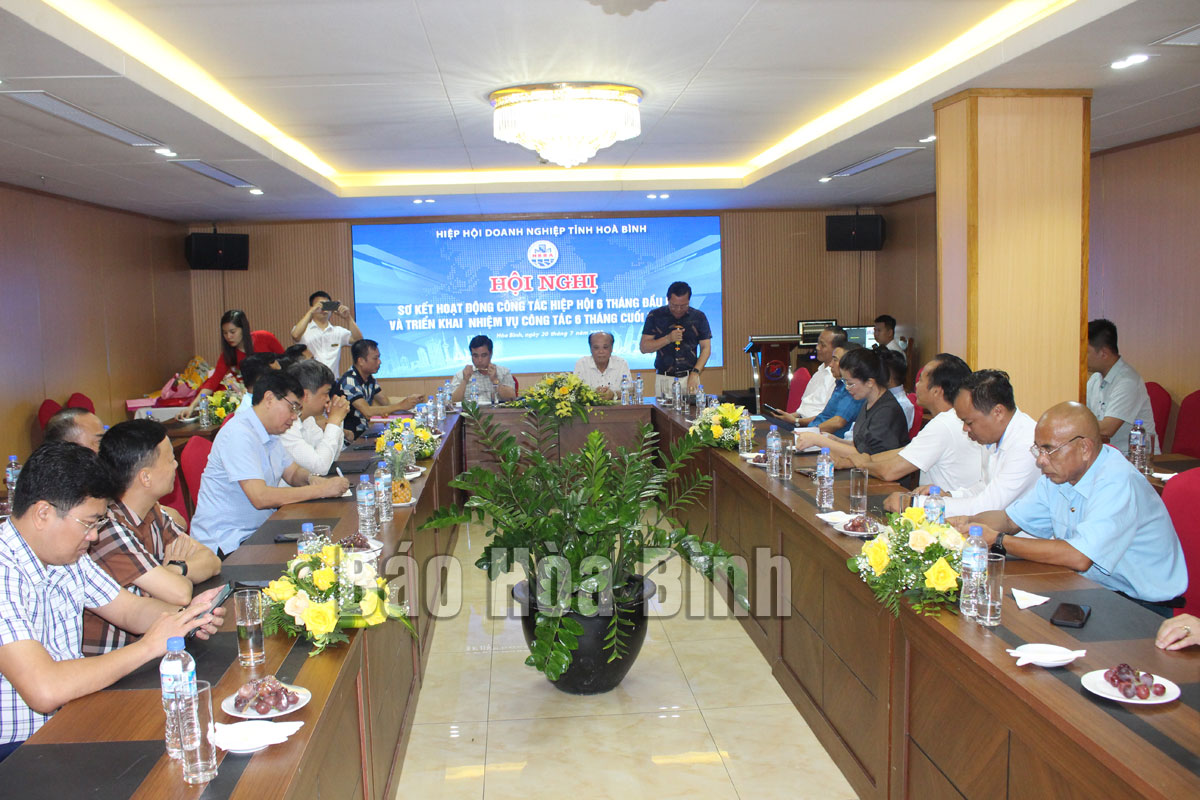
(HBO) – The provincial business association has met recently to review its operation in the first half and set out tasks for the remaining months of this year.
An overview of the
meeting held by the provincial business association.
It has been operating in Hoa Binh city and nine
districts, with more than 700 member enterprises that employ some 10,000
labourers with a stable income.
In the first six months of this year, the
association gathered and supported businesses, provided consultancy for the
provincial People’s Committee, and coordinated with competent departments,
agencies and localities to provide information for businesses and help them
remove obstacles, and create a more favourable business environment, contributing
to attracting more investments and improving the provincial competitiveness
index (PCI).
The enterprises have made positive contributions
to local socio-economic development. Notably, the association has effectively
implemented the 2021 Department and District Competitiveness Index (DDCI).
Thanks to the efforts, it has received support
from agencies and localities, as well as the active participation of household
businesses, companies and cooperatives.
The association raised proposals and showed its
strong support for the province’s policies to step up administrative reforms
and improve the local investment environment.
It and its members intensified communication
activities, and paid heed to the emulation and reward work, as well as cultural
and sport activities. They also focused on Party building and the development
of organisations in businesses, while joining social and charitable affairs.
Regarding orientations and tasks for the last
six months, the association will continue to work as a representative of
businesses, and a bridge between them and State agencies.
It will organise more training courses for
businesses, enhance cooperation in trade and investment promotion, play a more
active role in charitable activities, and push ahead with patriotic emulation
movements./.
According to data from the Hoa Binh Provincial Party Committee, the industrial production index for the first six months of 2025 is estimated to have increased by 20% compared to the same period last year. This marks the highest year-on-year growth rate for this period since 2020.
In the first six months of 2025, Hoa Binh province’s export turnover was estimated at 1.145 billion USD, marking an 18.11% increase compared to the same period in 2024. Import turnover was estimated at $ 804 million, a 17.15% increase, which helped the province maintain a positive trade balance.
The lives of the ethnic minority farmers in Tan Lac district have gradually improved thanks to the new directions in agricultural production. This is a testament to the collective strength fostered through the professional associations and groups implemented by various levels of the district’s Farmers’ Union.
With the motto the "product quality comes first,” after nearly one year of establishment and operation, Muong village’s Clean Food Agricultural and Commercial Cooperative, located in Cau Hamlet, Hung Son Commune (Kim Boi district), has launched reputable, high-quality agricultural products to the market that are well-received by consumers. The products such as Muong village’s pork sausage, salt-cured chicken, and salt-cured pork hocks have gradually carved out a place in the market and they are on the path to obtaining the OCOP certification.
In the past, the phrase "bumper harvest, rock-bottom prices" was a familiar refrain for Vietnamese farmers engaged in fragmented, small-scale agriculture. But today, a new spirit is emerging across rural areas of Hoa Binh province - one of collaboration, organisation, and collective economic models that provide a stable foundation for production.
Maintaining growing area codes and packing facility codes in accordance with regulations is a mandatory requirement for agricultural products to be eligible for export. Recently, the Department of Agriculture and Environment of Hoa Binh province has intensified technical supervision of designated farming areas and packing facilities to safeguard the "green passport" that enables its products to access international markets.



